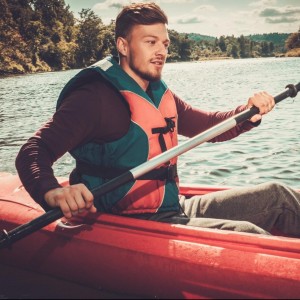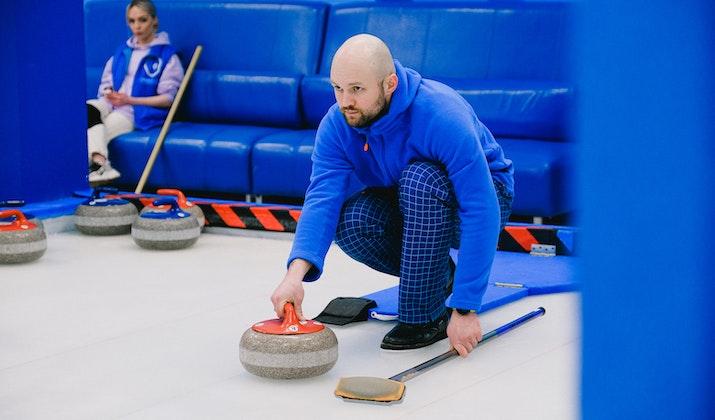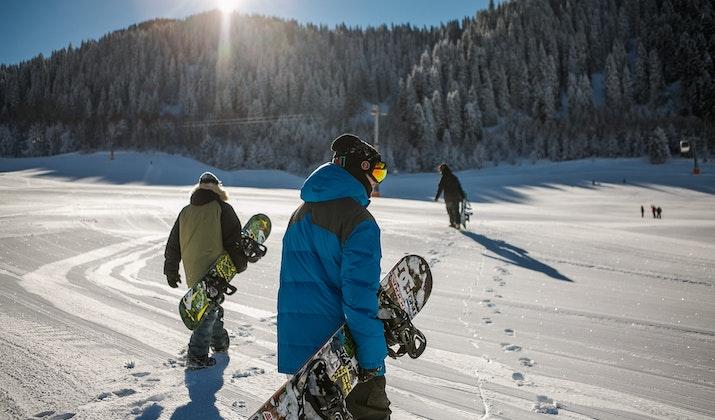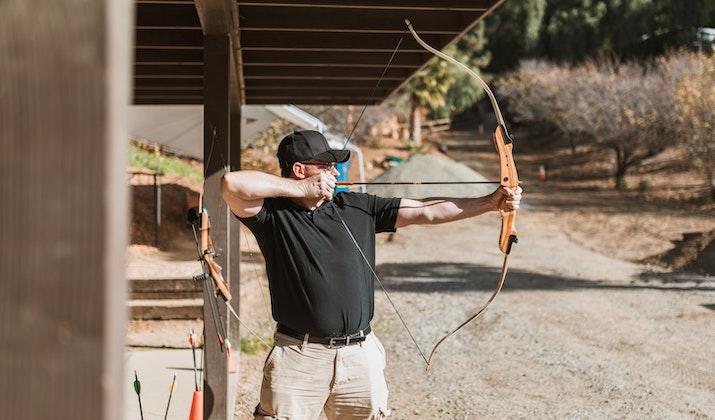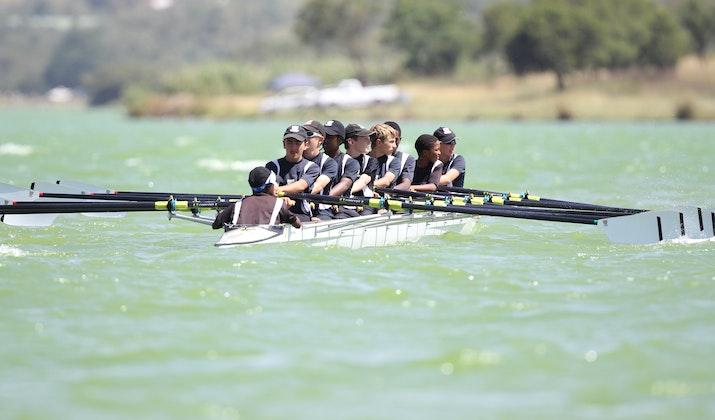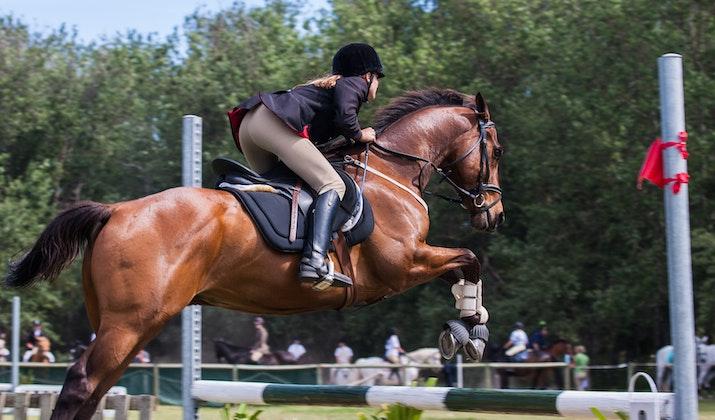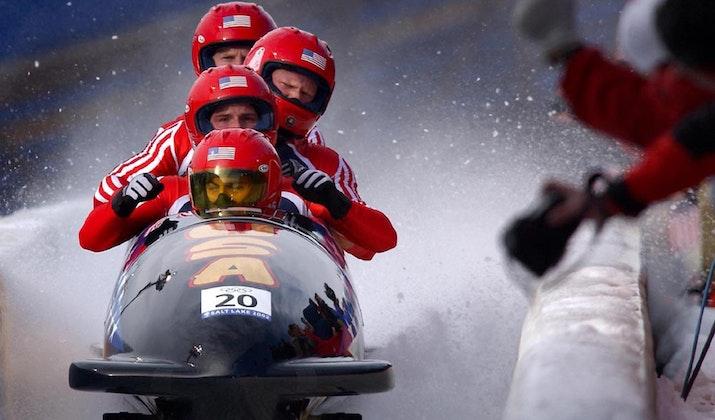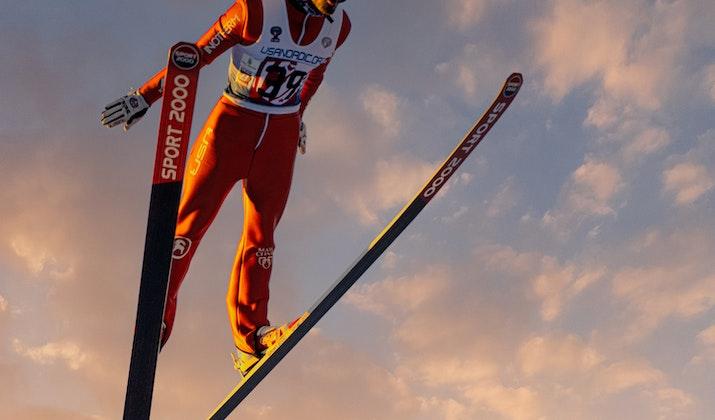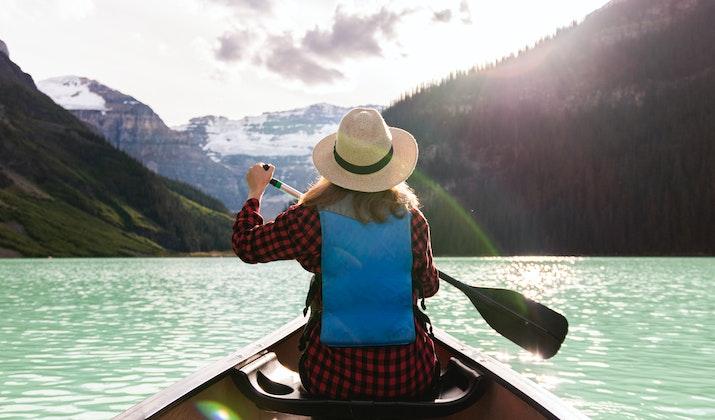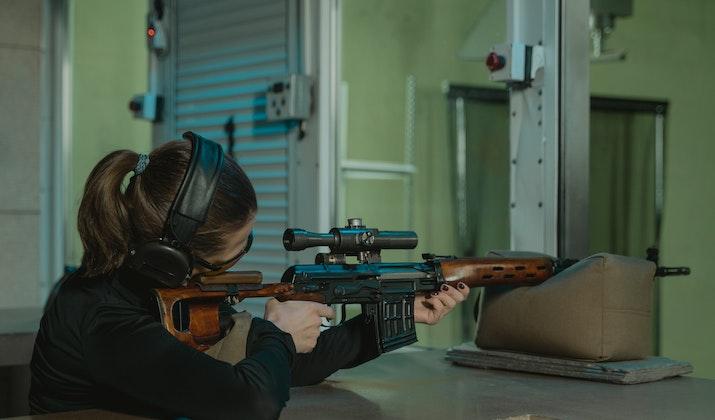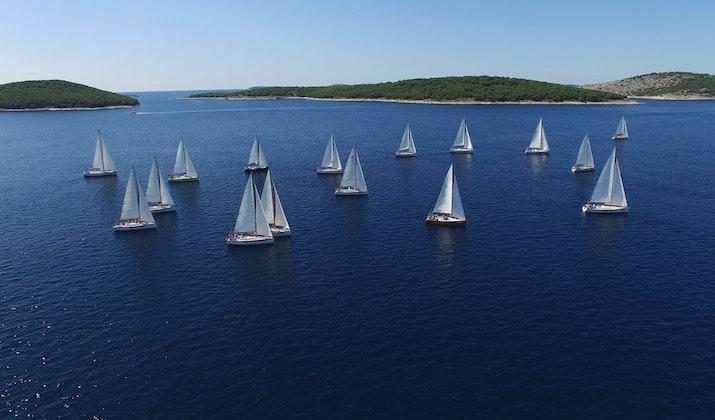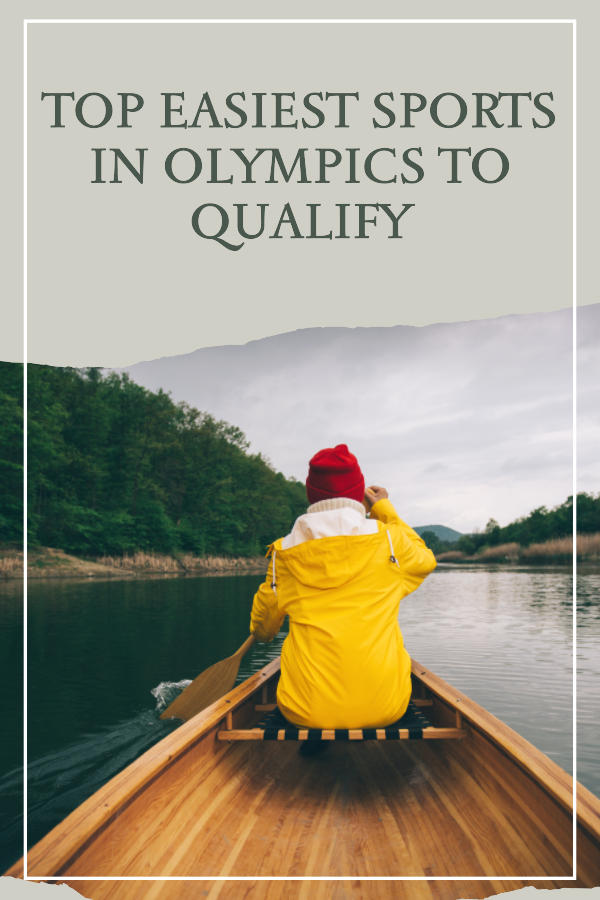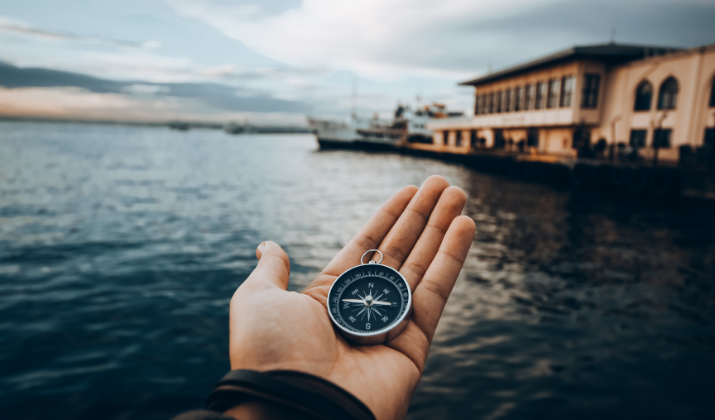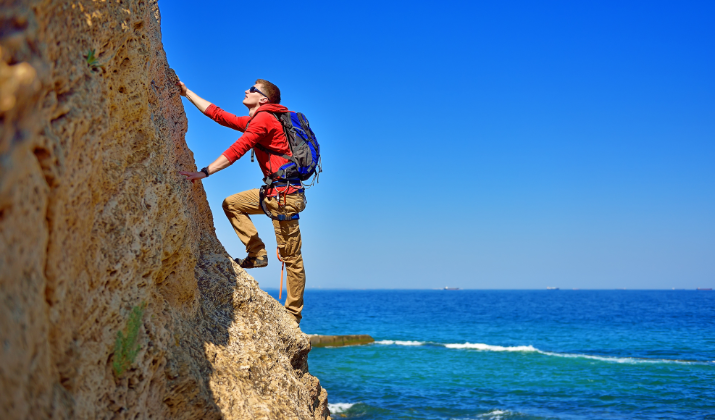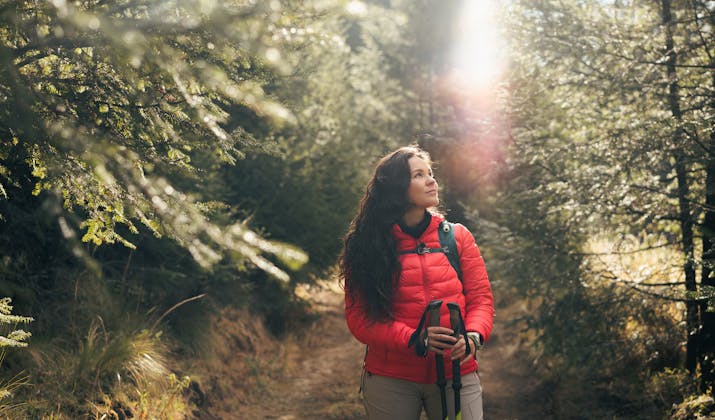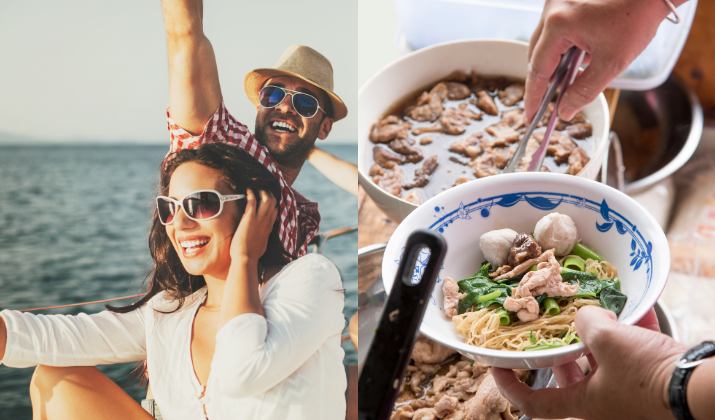Every time the Olympic Games rolls around, we get to watch the best athletes in the world display incredible talent and compete against each other to win the coveted Olympic medals.
For many of us, bearing witness to this can leave us wondering if we could also become good enough at something to make it to the Olympics. In those moments, we become so inspired that we start dreaming of sports that we might be good at.
If you’ve also had a similar dream and you’re seriously nursing ideas on how to make it to the Olympics, you need to pick a sport that you can easily thrive in.
To help with your research, we’ve put together a list of some of the easiest sports in the Olympics to qualify. These won’t require decades of training or a specific genetic makeup for you to compete effectively.
Take a look and get started.
Also Read: Hardest Sports In The World
Easiest Sports In Olympics To Qualify
1. Curling
Photo by SHVETS production
Curling is a team sport that is usually played by two teams of four players. Players have to slide 44-pound granite stones across a sheet of ice and toward a target””called a House.
The sport has been around since the 16th century and made its first appearance at the Olympics in the 1924 Winter Games. However, it wasn’t officially added to the program until 1998.
Curling currently has four disciplines at the Olympics and Paralympics: men’s, women’s, mixed doubles, and mixed wheelchair teams. The great thing about curling is that you don’t need to have any special physical attributes to be able to pick it up.
All you need is some upper body strength to help you curl the stones across the ice sheet with considerable speed and force and score a point. You also need some endurance as you’ll be required to stand and bend down throughout the game.
Curling isn’t a very popular game so there are not a lot of people competing in it, especially at the Olympics so you’ll have an easy time qualifying if you train well and sharpen your skills.
Also Read:Â Summer Sports List
2. Snowboarding
Photo by Visit Almaty
Snowboarding is a combination of skiing, surfing, and skateboarding. The sport was pioneered in the 1960s in the United States and it made its first appearance in the Winter Olympics in 1998.
There are currently four snowboarding disciplines at the Olympics that men and women can compete in separate categories at the Olympics: the parallel giant slalom, the half-pipe, the snowboard cross, and the snowboard slopestyle.
So what makes Snowboarding one of the easiest sports in the Olympics to qualify for? It’s because once you get past all the initial struggles and learn the basics, you can progress quickly and become an expert snowboarder in no time if you put in enough practice.
In just a few hours or days of lessons, you can learn how to remain upright on your snowboard and slice through easy trails. And after 1-3 seasons, your skill can improve to an intermediate level.
Naturally, the more access you have to snowy hillsides, the quicker you can advance. So if you don’t live in a region with a lot of snow and hills that you can practice on, you may have to consider moving to one so you can get better faster.
Snowboarding is better suited to people who are younger or physically fit because you’re going to fall a lot as a beginner. And older people and those in bad shape will be more likely to sustain serious injuries when this happens.
Also Read:Â List of Sports That Start With O
3. Archery
Photo by RDNE Stock project
The use of bows and arrows dates back thousands of years before the advent of civilization. Archery is one of the earliest recorded sports still in practice today so it’s no surprise that it’s been featured in the Olympics since the second Olympic event in 1900, which was held in Paris.
The beauty of archery is that you don’t need to have impressive physical strength, stamina, and agility to train and become skilled in the sport. What it takes is good hand-to-eye coordination, high-level mental focus, moderate upper-body strength, some patience, dedication, and practice.
The Oscar-winning actress, Geena Davis came very close to qualifying””she finished in 24th place out of 300””for the 2000 Sydney Olympics as one of the players for the United States Archery team.
She was 43 at the time and had only touched a bow and arrow for the first time in 1997 when she decided to start learning archery and train for the Olympics.
Bear in mind that becoming a master archer is not a cheap endeavor. You’ll have to spend about $2,000 to purchase a complete set of equipment and around $25,000 annually on lessons and travel costs to competitions.
Also Read:Â Is Skiing a Rich Peoples’ Sport?
4. Rowing
Photo by Patrick Case
Rowing, also known as Crew, is one of the oldest events at the Olympics. It has been featured in the Olympic program since 1896 and male rowers have competed in this category since 1900, while female rowers have competed since 1976.
This sport involves racing boats using oars to propel them, usually over a 2-kilometer course on calm waters. However, rowing doesn’t use free-floating oars, unlike other paddling sports like canoeing and kayaking.
Rowing paddles are attached to the boat with oarlocks so each paddler has to control dual paddles at once instead of swinging a single paddle from side to side.
There are currently 7 rowing events and boat classes at the Olympics that both men and women can compete in individually, single sculls, double sculls, quadruple sculls, coxless pair, coxless four, eight, and lightweight double sculls.
What makes rowing one of the easier sports to qualify for at the Olympics is that it doesn’t require you to start training early or train for many years before you can master it.
Most Olympic-level rowers gravitate to the sports in their late teens or 20s, so it’s no surprise to find people who are around 30 years old or older competing at events.
Also, rowing takes about two years of regular practice and training to master, and the cost of training is practically insignificant, making it accessible to almost anyone.
To make it as a rower, you need to be comfortable with being in the water and getting wet. You’re also going to have to put in hours at the gym to build your upper body muscular strength and cardiovascular endurance skills.
Check Out:Â Is Skiing a Sport?
5. Equestrian
Photo by Jean van der Meulen
If you’re good with animals and you want an Olympic sport that allows you to leverage this skill on the world stage, consider training to compete in the equestrian category.
Equestrian is a sport that involves riding on horseback. There are three equestrian disciplines featured at the Olympic Games in individual and team events: show jumping, eventing, and dressage.
In show jumping, riders have to scale over 10 to 13 obstacles as fast as they can and incur little to no penalties along the way. For dressage, horses and riders are judged on their harmony, cooperation, and how well they execute predetermined moves.
Eventing is a combination of dressage, jumping, and cross-country; the latter requires horses to clear up to 40 natural and manmade obstacles on a course.
What I love about equestrian is that it’s one of the few Olympic sports that aren’t separated by gender so you’ll have to meet a uniform standard to qualify whether you’re male or female.
Also, it doesn’t have an age barrier so you can qualify and compete at any age, even in your golden years. However, there’s one caveat to this sport that you need to keep in mind before pitching your tent here: it’s a really expensive venture.
You can’t just train with any kind of horse and expect to get far. You need a show horse that has a natural ability to perform well at jumping and running and listening to your every command.
Unfortunately, these kinds of horses don’t go for cheap. You might have to spend between a few hundred thousand or even a couple million dollars to acquire one.
After getting the horse, you’ll still need to take care of the animal’s feeding and upkeep expenses and pay for training which can also cost a pretty sum. But if you’ve got the money to burn, equestrian can be your ticket to the Olympics.
Also Read:Â Top Rich People Sports
6. Bobsled
Photo by Pixabay
The 1993 film Cool Runnings is based on the true story of Jamaica’s maiden attempt and qualification for the 1998 Olympic Games. In less than a year, the nation was able to put together a four-man bobsled team confident and talented enough to face off against the best competitors from all over the world.
What makes the story even more interesting is that before beginning their training in 1987, the athletes had never touched a bobsled before. This proves that bobsled is one of the easiest sports in the Olympics to qualify for.
Bobsled or bobsleigh as it is often called is a winter sport that got its start in the late 19th century although the activity was invented much earlier in the 1860s. Bobsled is typically a team sport in which players race a specially designed gravity-powered sled down an ice track.
To win, your team has to make it to the end of the route in the fastest time. Bobsled has been a part of the Winter Olympic Games program since 1924 and has competed at every game except for the 1960 Olympics in Squaw Valley.
There are four events that you can train and qualify for in the Bobsled category depending on your gender: four-man, two-man, two-woman, and women’s mono bob.
Keep in mind that you need some degree of athleticism to excel in this sport. If you’re already good at running, kayaking, swimming, and other athletic activities, those skills will transfer well to bobsled.
Also Read:Â Fastest Growing American Sports
7. Ski Jumping
Photo by Todd Trapani
If Eddie the Eagle can qualify for the 1988 Olympics as a ski jumper without ever practicing on a real hill and by jumping off the roof of his house instead, you can do it too.
There are not many Olympic sports where you can improvise the skill and experience needed to compete on the world stage. But it seems like with ski jumping, the only thing stopping you is your determination and willingness to try.
In ski jumping, the goal is to jump as far as possible after sliding down a hill on your ski using a specialized ramp, while demonstrating their personal aerial styles.
Ski jumping traces its history to 19th century Norway although it did not appear in the Winter Olympics until 1924 in France. Five ski Jumping events were featured at the last Winter Olympics in 2022: men’s normal and large hill individuals, men’s team, women’s normal hill individual, and mixed team.
Since ski jumping is still a relatively new and niche category at the Olympics there aren’t as many rules and qualification processes to overcome, making it one of the easiest sports to qualify for.
What’s more, ski jumping is not as challenging as it seems, especially when you’re just starting out. The sport is incredibly easy to pick up as you climb up the skill ladder, it gets a bit harder to master.
This is because you have to learn more complicated techniques to help you pick up pace in the air and conquer larger and steeper hills. But as long as you’ve got the passion for it, you shouldn’t find it hard to keep going and practicing until you’re good enough to compete at the Olympics.
Also Read:Â List of Sports That Start With K
8. Canoeing
Photo by Andre Furtado
Another sport that you can try your hands at in hopes of qualifying for the Olympics is canoeing. Its first appearance in the Olympics was in 1924, featuring demonstration races.
In 1936, canoe sprint events were made a part of the official program of the Summer Olympic Games. Slalom events, on the other hand, first partook in the Olympics in 1972, and after a brief disappearance, returned in 1992 till present.
Canoe and kayak sprints take place on flatwater and in lanes while slalom events involve navigating through obstacles in river rapids as fast as possible. Both races typically cover distances between 200 and 1000 meters.
Canoes and kayaks are the types of boats used in canoeing events so if you enjoy spending time on the water or are already an avid paddler, this could be the Olympic sport for you.
You can qualify to compete in the individual, two-person, and four-person canoe and kayak classes depending on your preference.
But don’t expect to scale through on luck because of how relatively easy the category is to qualify for. You still have to put in the work to become good enough to compete against the best.
Also Read:Â List of Sports That Start With T
9. Shooting
Photo by Tima Miroshnichenko
If you’re not athletic, in top physical shape, and interested in doing anything to change that, shooting might be the Olympic sport for you. To shoot, you can be young or old, thin or fat, tall or short, it doesn’t matter.
All shooting requires is that you have complete self-control, strong hand-to-eye coordination, and mental focus to be able to hit your targets with precision using a firearm.
There are different shooting disciplines that you can compete in such as shotgun, rifle, and pistol, and each one comes with its unique equipment and regulations.
Another factor that makes shooting one of the easiest sports in the Olympics to qualify for is the higher number of competitor slots it offers compared to other sporting categories.
To top it off, the pool of aspiring Olympic qualifiers is much smaller than the pool of people gunning to compete in sports like basketball, swimming, running, or gymnastics.
Although shooting is easier to qualify for, it’s still going to take a few years of rigorous training and constant practice to become an exceptional marksman and clinch a spot at the Olympics.
Also Read:Â List of Sports That Start With Z
10. Sailing
Photo by Pixabay
This is one of the OG Olympic sports. It has been a part of the Olympics since the very first event in Athens, in 1896, and except for the 1904 Summer Olympics, it has been featured in every edition of the epic event.
What makes sailing attractive and easy to qualify for is that it doesn’t have an age barrier. You can pick it up and compete at any age, even well into your 60s; Santiago Raul Lange from Argentina was 59 when he won gold at the 2016 Rio de Janeiro Olympics.
Also, you don’t need to demonstrate extreme levels of fitness to become a sailor. However, you will require great attention to detail and will have to build your core and upper body strength, as well as your stamina and endurance levels.
Sailing is simply the art of propelling a boat, yacht, or similar vessel using the wind and waves as a driving force. Up until 1988, Sailing was a gender-neutral sport where both male and female sailors competed against each other for the coveted gold medal.
Now, there are exclusive events for men and women separately, as well as a compulsory mixed-gender event. You’ll be happy to know that getting into sailing is a relatively low-cost enterprise.
If you don’t own a boat or know anyone who owns one that you can borrow, you can rent a boat and hire an instructor to take you sailing and teach you the ropes.
Check out the U.S. Sailing website to discover places near you where you can learn to sail small boats, power boats, and keelboats on a lake or ocean.
Conclusion
Qualifying for the Olympics is a prestigious honor and achievement in its own right even if you don’t end up winning any medals.
The opportunity to compete amongst and be recognized as one of the best players of a particular sport is a feat very few people will ever attain in their lifetimes.
The sport you pick can increase or cripple your chances of qualifying for the Olympics. You can consider any of the sports discussed above if you want to have an easier time getting there.

